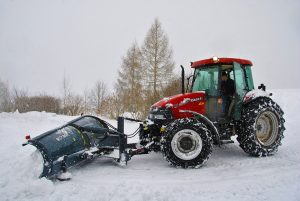5 industries that can benefit from Pay as You Go
Pay as You Go Workers Compensation Insurance is a unique payment option for paying for Pay as You Go Workers Comp Premium. The program allows businesses to get coverage in place at a significantly lower amount up-front. This can benefit cash-strapped businesses that needs this money to spend on more pressing business needs. It also allows businesses to pay premium each month in real-time based upon the previous months payroll. This allows seasonal businesses to pay a majority of their yearly premium during the busy season when the business has cash on hand while allowing the business to pay less for premium during the slow months when cash-flow may be more difficult to come by.
Lawncare and Landscaping
The lawncare and landscaping industry tends to be seasonal in nature depending upon where the business is located. In most climates, the busy season in this industry lasts 4 to 6 months out of the year. A pay as you go workers compensation insurance policy will allow your business to pay premium in real-time based on the previous months payroll. This will allow the business to pay a lower amount for premium during the slower months when cash-flow is lower and pay the bulk of the premium for the year during the busy season when cash is plenty.
Resorts
Resorts are the ultimate seasonal business. Regardless of whether the resort is located in a tropical climate like Florida or an arctic climate like Aspen, Colorado; the majority of the money made for the resort is made during a small amount of the year. Most resorts may have as many as 500 employees on payroll during the peak season, but may get as lean as 50 employees during other parts of the year. This is one of the perfect types of businesses to benefit from pay as you go workers compensation insurance.
Farming
For most areas of the country there is one growing season for most farm businesses. In some areas the climate is ideal for 2 or 3 growing season and some farms are able to grow some crops in the colder months like Winter Wheat, but most farms experience one growing season per year. This means the farm business has a portion of their year where they will have a significantly larger staff on payroll. This allows the business to pay more during a portion of the year when they are busy and less during another part of the year when work is slow. It also allows businesses to pay for their premium more accurately than a traditional workers comp policy that is based upon an estimated payroll from the previous year or three years.
Ice Cream or Snow Cone Shops
Ice Cream or Snow Cone Shops tend to be seasonal and small revenue businesses. Many do not have enough cash on hand at the beginning of the season to pay for a quarter or a third of the total premium in one lump-sum payment. For these types of businesses pay as you go workers compensation insurance can be the perfect remedy to get coverage in place to start up the Summer Season.
Construction
Construction is not as seasonal as other businesses, but there are definitely high and low seasons involved in the trade. Many businesses get paid in a lump-sum when the job is finished. This can make it difficult to pay premium when business is slow or you have a project that is long-term. Depending upon how the business structures their payments, their may be extended time periods when the business does not bring in much revenue. Pay as you go can help the business owner to know how much they have to pay for premium each month and gives them the ability to cut hours when they are running low on cash.
Snow Removal
Snow removal businesses are obviously only located in certain areas of the country and only operate at certain times of the year. Even in Alaska, snow does not accumulate in Summer. For this reason, most snow removal businesses only collect revenue during the colder months of the year. These businesses are also heavily dependent upon the weather. With a traditional workers comp policy, the premium payments are based off of an estimated payroll from the previous year or a number of years. In this industry the man hours can be dramatically different from year to year. Pay as you go workers compensation insurance is perfect for businesses like this.





